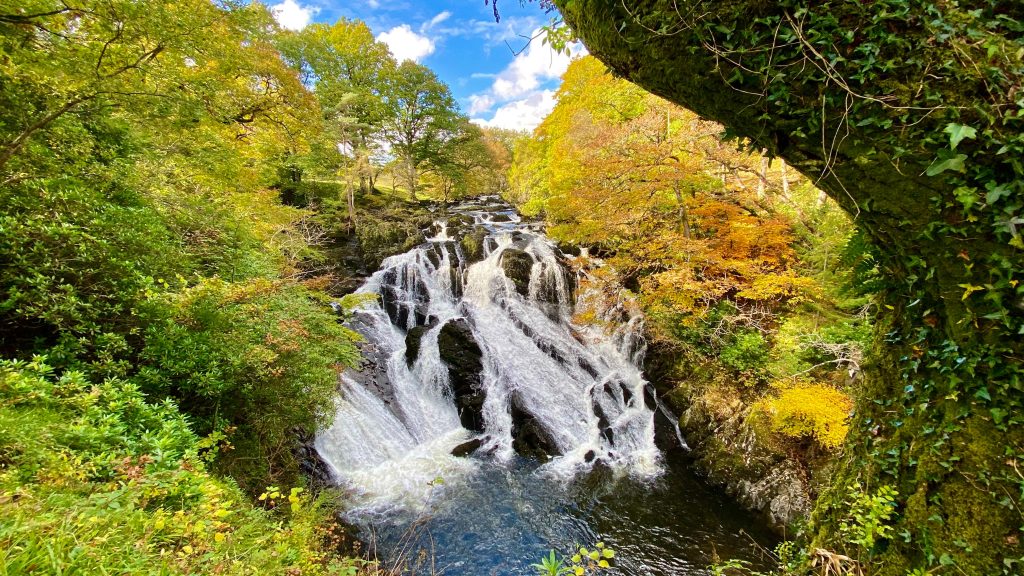Here are some of the articles published in the welsh agenda in 2021 that best reflect the diversity of Welsh places.
From Treorchy to Bangor, and from Montmouthshire to Ceredigion, our members span the whole of Wales. In this selection, we picked 10 of the articles which we thought reflected the diversity of Welsh places and people in 2021 on the welsh agenda.
Belonging to ‘Y Cymry’
Hannah Watkin explores her connection to the Welsh land and Welsh identity.
When away from Wales for the first time at university, I found myself suffering greatly from hiraeth: that famous longing for Wales, Welsh culture and the Welsh people. As a result, one of the first student societies I joined was the Welsh one.
What do the Welsh Parties Have to Say About Welsh Places?
In May 2021, we asked the biggest parties in Wales how they would improve local democracy, community funding, data accessibility and town centres all across Wales. Andy Regan examines their answers in this IWA analysis.
The placemaking agenda should be mindful of who does and doesn’t benefit.
The Welsh Media Problem
While, Shirish Kulkarni tells us, the London media scene is just not that into Wales, we should turn our eye to the diversity of local press in the country, and make sure that it’s fit for the future. In this piece, he champions a reflective, thriving, inclusive and sustainable journalism.
The success of independent media organisations like Nation.Cymru and Voice. Wales has proved there’s an audience for Welsh national news services; and the launch of Newsquest’s The National is an obvious compliment to the work those outlets have been doing. We also have a growing local and hyperlocal news sector, with brilliant operations like the Caerphilly Observer and Cwmbran Life ably supported by the Independent Community News Network and the Centre for Community Journalism.
Active Travel: A Faster Way to Net Zero
Jasmine Berry asks why active travel is not more accessible between Machynlleth and Aberystwyth, and makes a case for better cycling routes between Welsh towns.
I live in Furnace, a village between Machynlleth and Aberystwyth and I travel almost daily to both towns – to get to school or see friends. But without the comfort of rolling road closures and police escorts, cycling on the A487 between these towns terrifies me.
Finders or Keepers?
Frances Williams reflects on the transformation of the Cardiff Docks and on what might inform a more complex ‘sense of place’ in policymaking.
Statistical data can indeed be used to support grassroots activism (from below) but they can also be misused to undermine it (from above). Qualitative data will help places develop in the future through allowing feelings to give contexts for fact, with policy-makers tuned to affect not merely effect.
What Might a National Conversation Look like?
The kind of national conversation that we’re advocating here is not one that can be had quickly or on a budget. It has to empower the people that we involve, and especially those whose voices are seldom heard in this type of debate.
Why Newport Needs Novels
Book Review: Easy Meat
Polly Winn reviews Rachel Trezise’s ‘Easy Meat’ (Parthian), a day in the life of a typical Valleys boy on 23 June 2016 – when the UK voted to leave the EU.
Easy Meat is simultaneously a romantic and confrontingly cynical portrayal of life in the Valleys, the figure of speech itself seemingly representing how people of the Valleys have too often been exploited, taken advantage of and perhaps overlooked by mainstream culture.
Beyond the 7% – Towards a Politically Representative Wales
As we moved into a new Senedd term, Leila Usmani and Sahifa Miah reviewed Race Alliance Wales’ report into racialised representation and asked: who runs Wales?
Having a true representation of races and ethnicities in Wales and considering other characteristics in representation such as racialised women, young people, disabled and neurodiverse people, and LBGTQIA+ people, was one of the strongest messages to come out of the ground-breaking research.
Culture is ordinary – Sure, but so’s Apathy
On the occasion of Raymond Williams’s centenary, Merlin Gable explores the legacies of the Welsh critic and asks what we want contemporary Welsh culture to look like.
In his final work, the magisterial and incomplete novel People of the Black Mountains, Williams instructs you: ‘See this layered sandstone in the short mountain grass. Place your right hand on it, palm downward. See where the summer sun rises and where it stands at noon. Direct your index finger midway between them. Spread your fingers, not widely. You now hold this place in your hand.’ In holding and considering place seriously and with thought, we can render it unordinary and thus see its true patterns.
No Country for Young Folks: Looking for the Full Picture of the Welsh ‘Brain Drain’
All articles published on the welsh agenda are subject to IWA’s disclaimer.






Comments are closed.